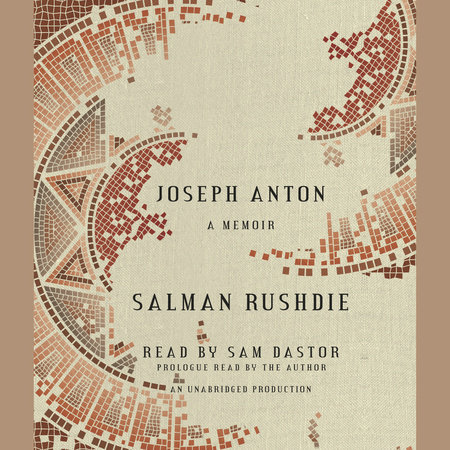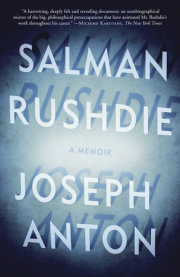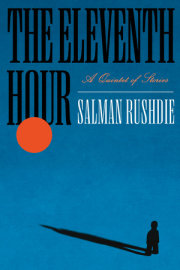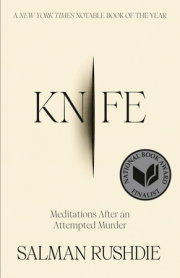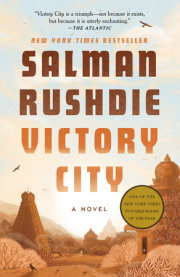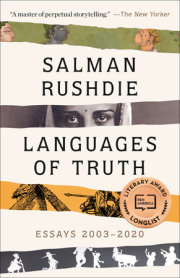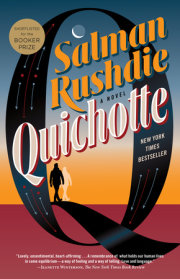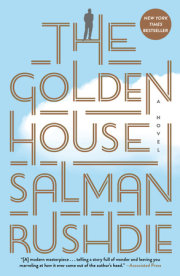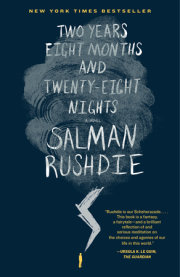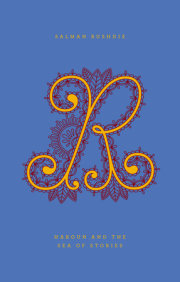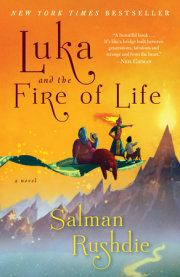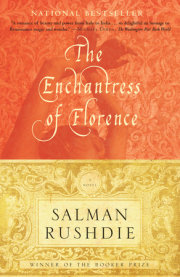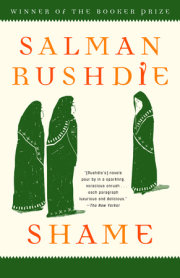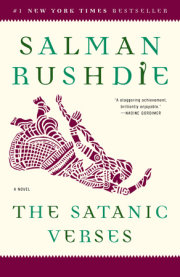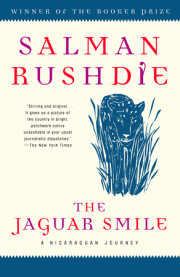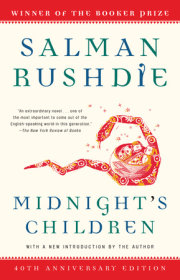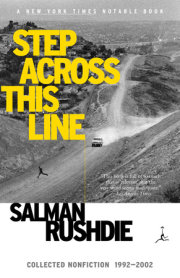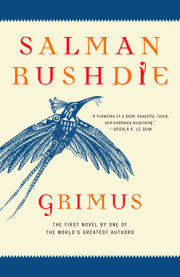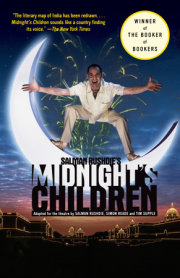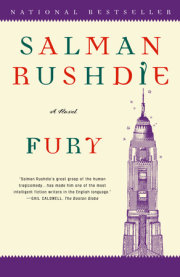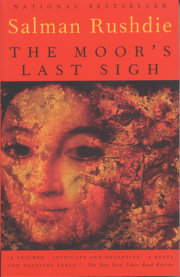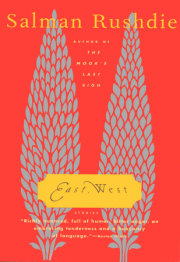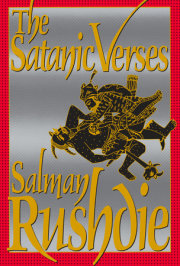Prologue
The First Blackbird
AFTERWARDS, WHEN THE WORLD WAS EXPLODING AROUND HIM AND THE lethal blackbirds were massing on the climbing frame in the school playground, he felt annoyed with himself for forgetting the name of the BBC reporter, a woman, who had told him that his old life was over and a new, darker existence was about to begin. She had called him at home on his private line without explaining how she got the number. “How does it feel,” she asked him, “to know that you have just been sentenced to death by the Ayatollah Khomeini?” It was a sunny Tuesday in London but the question shut out the light. This is what he said, without really knowing what he was saying: “It doesn’t feel good.” This is what he thought: I’m a dead man. He wondered how many days he had left to live and thought the answer was probably a single-digit number. He put down the telephone and ran down the stairs from his workroom at the top of the narrow Islington row house where he lived. The living room windows had wooden shutters and, absurdly, he closed and barred them. Then he locked the front door.
It was Valentine’s Day but he hadn’t been getting on with his wife, the American novelist Marianne Wiggins. Six days earlier she had told him she was unhappy in the marriage, that she “didn’t feel good around him anymore,” even though they had been married for little more than a year, and he, too, already knew it had been a mistake. Now she was staring at him as he moved nervously around the house, drawing curtains, checking window bolts, his body galvanized by the news as if an electric current were passing through it, and he had to explain to her what was happening. She reacted well, beginning to discuss what they should do next. She used the word “we.” That was courageous.
A car arrived at the house, sent by CBS television. He had an appointment at the American network’s studios in Bowater House, Knightsbridge, to appear live, by satellite link, on its morning show. “I should go,” he said. “It’s live television. I can’t just not show up.” Later that morning the memorial service for his friend Bruce Chatwin was to be held at the Orthodox church on Moscow Road in Bayswater. Less than two years earlier he had celebrated his fortieth birthday at Homer End, Bruce’s house in Oxfordshire. Now Bruce was dead of AIDS, and death had arrived at his own door as well.
“What about the memorial,” his wife asked. He didn’t have an answer for her. He unlocked the front door, went outside, got into the car and was driven away, and although he did not know it then, so that the moment of leaving his home did not feel unusually freighted with meaning, he would not go back to that house, his home for five years, until three years later, by which time it was no longer his.
The children in the classroom in Bodega Bay, California, sing a sad nonsense song. She combed her hair but once a year, ristle-te, rostle-te, mo, mo, mo. Outside the school a cold wind is blowing. A single blackbird flies down from the sky and settles on the climbing frame in the playground. The children’s song is a roundelay. It begins but it doesn’t end. It just goes round and round. With every stroke she shed a tear, ristle-te, rostle-te, hey-bombosity, knickety-knackety, retroquo-quality, willoby-wallaby, mo, mo, mo. There are four blackbirds on the climbing frame, and then a fifth arrives. Inside the school the children are singing. Now there are hundreds of blackbirds on the climbing frame and thousands more birds fill the sky, like a plague of Egypt. A song has begun, to which there is no end.
When the first blackbird comes down to roost on the climbing frame it seems individual, particular, specific. It is not necessary to deduce a general theory, a wider scheme of things, from its presence. Later, after the plague begins, it’s easy for people to see the first blackbird as a harbinger. But when it lands on the climbing frame it’s just one bird.
In the years to come he will dream about this scene, understanding that his story is a sort of prologue: the tale of the moment when the first blackbird lands. When it begins it’s just about him; it’s individual, particular, specific. Nobody feels inclined to draw any conclusions from it. It will be a dozen years and more before the story grows until it fills the sky, like the Archangel Gabriel standing upon the horizon, like a pair of planes flying into tall buildings, like the plague of murderous birds in Alfred Hitchcock’s great film.
At the CBS offices he was the big news story of the day. People in the newsroom and on various monitors were already using the word that would soon be hung around his neck like a millstone. They used the word as if it were a synonym for “death sentence” and he wanted to argue, pedantically, that that was not what the word meant. But from this day forward it would mean that for most people in the world. And for him.
Fatwa.
“I inform the proud Muslim people of the world that the author of the ‘Satanic Verses’ book, which is against Islam, the Prophet and the Qur’an, and all those involved in its publication who were aware of its content, are sentenced to death. I ask all the Muslims to execute them wherever they find them.” Somebody gave him a printout of the text as he was escorted toward the studio for his interview. Again, his old self wanted to argue, this time with the word “sentence.” This was not a sentence handed down by any court he recognized, or which had any jurisdiction over him. It was the edict of a cruel and dying old man. But he also knew that his old self’s habits were of no use anymore. He was a new self now. He was the person in the eye of the storm, no longer the Salman his friends knew but the Rushdie who was the author of Satanic Verses, a title subtly distorted by the omission of the initial The. The Satanic Verses was a novel. Satanic Verses were verses that were satanic, and he was their satanic author, “Satan Rushdy,” the horned creature on the placards carried by demonstrators down the streets of a faraway city, the hanged man with protruding red tongue in the crude cartoons they bore. Hang Satan Rushdy. How easy it was to erase a man’s past and to construct a new version of him, an overwhelming version, against which it seemed impossible to fight.
King Charles I had denied the legitimacy of the sentence handed down against him. That hadn’t stopped Oliver Cromwell from having him beheaded.
He was no king. He was the author of a book.
He looked at the journalists looking at him and he wondered if this was how people looked at men being taken to the gallows or the electric chair or the guillotine. One foreign correspondent came up to be friendly. He asked this man what he should think about what Khomeini had said. How seriously should he take it? Was it just a rhetorical flourish or something genuinely dangerous?
“Oh, don’t worry too much,” the journalist said. “Khomeini sentences the president of the United States to death every Friday afternoon.”
“On air, when he was asked how he responded to the threat, he said, “I wish I’d written a more critical book.” He was proud, then and always, that he had said this. It was the truth. He did not feel his book was especially critical of Islam, but, as he said on American television that morning, a religion whose leaders behaved in this way could probably do with a little criticism.
When the interview was over they told him his wife had called. He phoned the house. “Don’t come back here,” she said. “There are two hundred journalists on the sidewalk waiting for you.”
“I’ll go to the agency,” he said. “Pack a bag and meet me there.”
His literary agency, Wylie, Aitken & Stone, had its offices in a white-stuccoed house on Fernshaw Road in Chelsea. There were no journalists camped outside—evidently the world’s press hadn’t thought he was likely to visit his agent on such a day—and when he walked in every phone in the building was ringing and every call was about him. Gillon Aitken, his British agent, gave him an astonished look. He was on the phone with the British-Indian member of Parliament for Leicester East, Keith Vaz. He covered the mouthpiece and whispered, “Do you want to talk to this fellow?”
“Vaz said, in that phone conversation, that what had happened was “appalling, absolutely appalling,” and promised his “full support.” A few weeks later he was one of the main speakers at a demonstration against The Satanic Verses attended by over three thousand Muslims, and described that event as “one of the great days in the history of Islam and Great Britain.”
Copyright © 2012 by Salman Rushdie. All rights reserved. No part of this excerpt may be reproduced or reprinted without permission in writing from the publisher.

